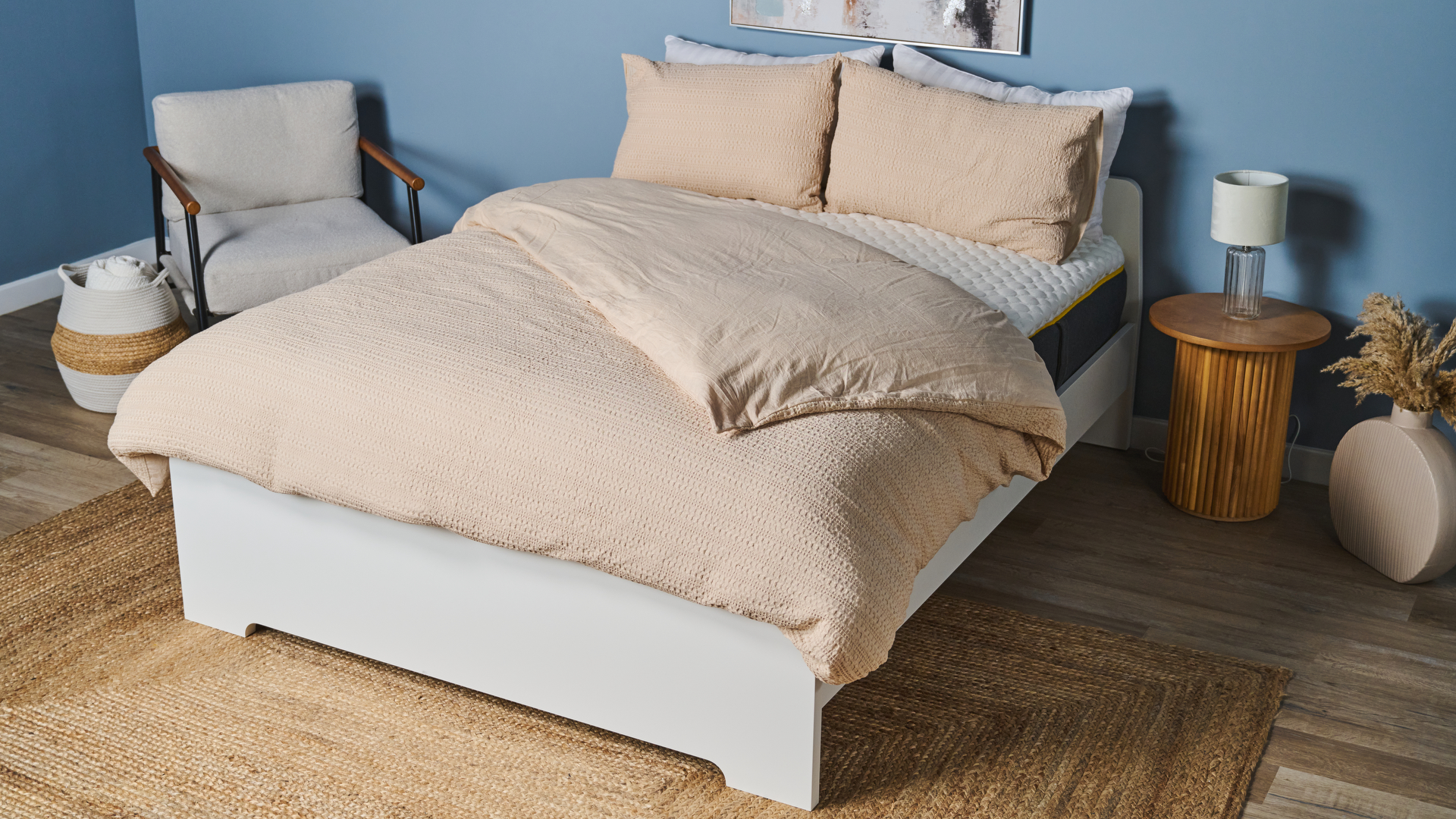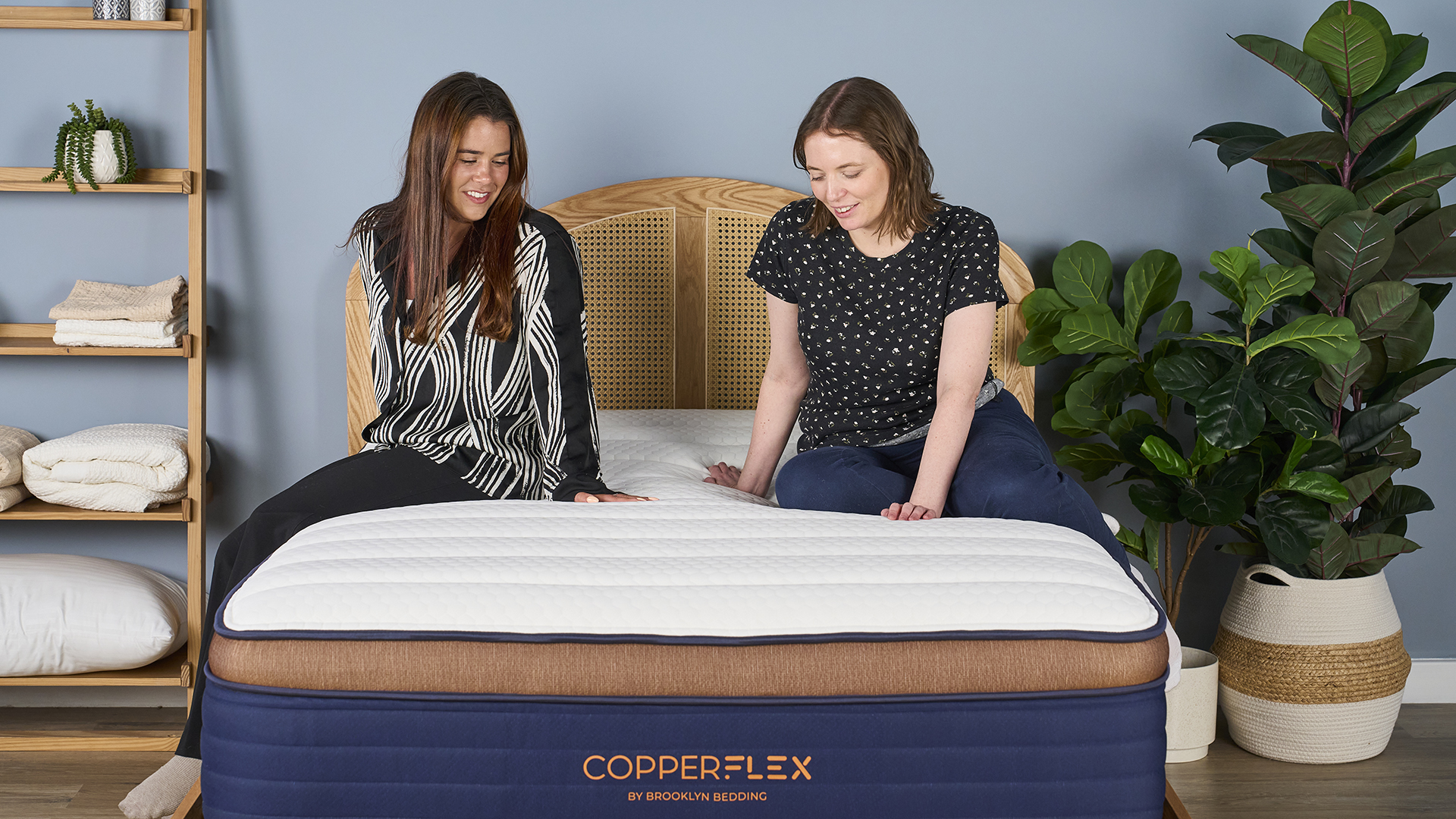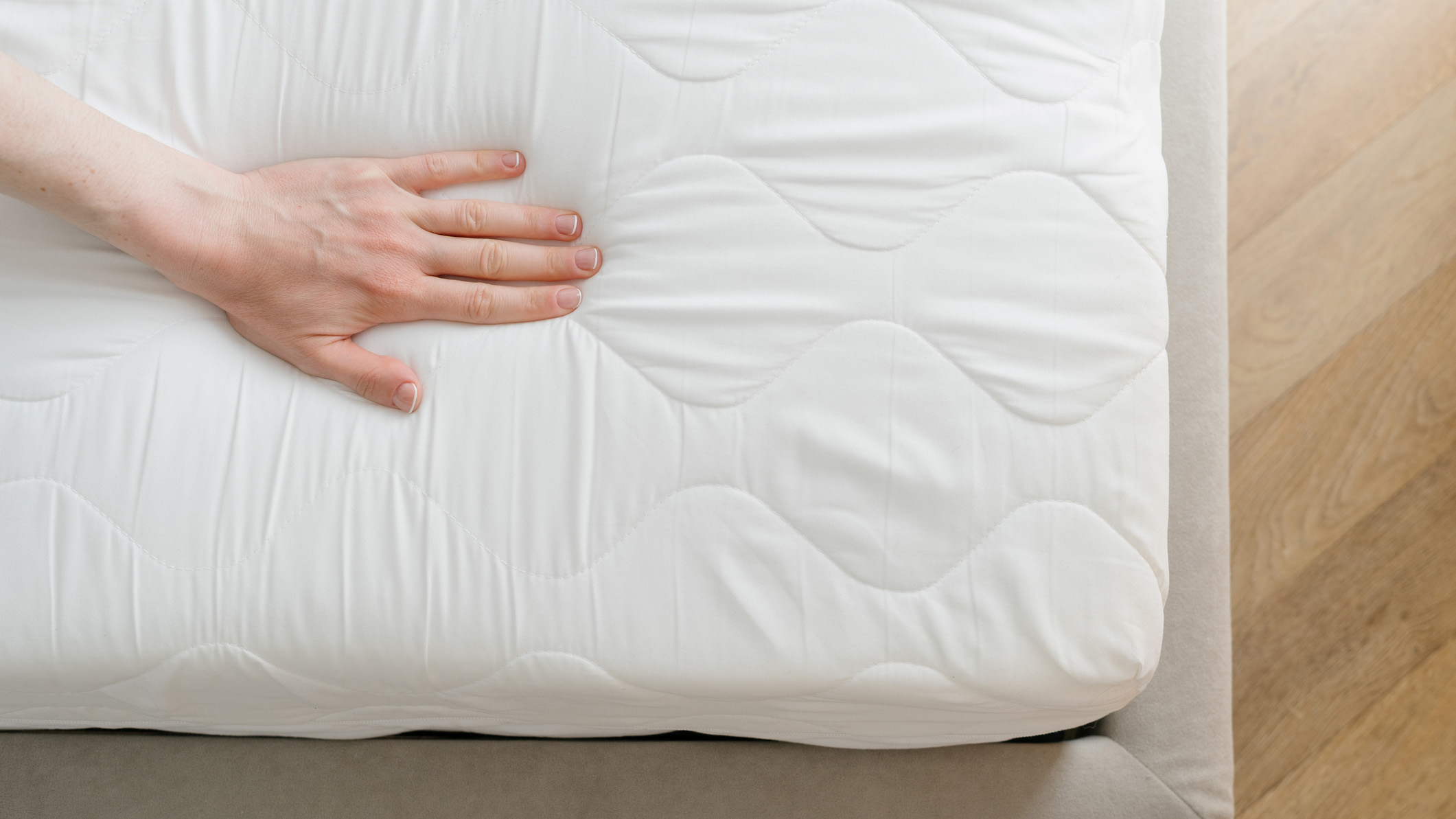How do mattress warranties work?
Our complete guide to understanding your mattress warranty

Here at Tom’s Guide our expert editors are committed to bringing you the best news, reviews and guides to help you stay informed and ahead of the curve!
You are now subscribed
Your newsletter sign-up was successful
Want to add more newsletters?

Daily (Mon-Sun)
Tom's Guide Daily
Sign up to get the latest updates on all of your favorite content! From cutting-edge tech news and the hottest streaming buzz to unbeatable deals on the best products and in-depth reviews, we’ve got you covered.

Weekly on Thursday
Tom's AI Guide
Be AI savvy with your weekly newsletter summing up all the biggest AI news you need to know. Plus, analysis from our AI editor and tips on how to use the latest AI tools!

Weekly on Friday
Tom's iGuide
Unlock the vast world of Apple news straight to your inbox. With coverage on everything from exciting product launches to essential software updates, this is your go-to source for the latest updates on all the best Apple content.

Weekly on Monday
Tom's Streaming Guide
Our weekly newsletter is expertly crafted to immerse you in the world of streaming. Stay updated on the latest releases and our top recommendations across your favorite streaming platforms.
Join the club
Get full access to premium articles, exclusive features and a growing list of member rewards.
When choosing a mattress, it’s easy to focus on cost and comfort, but it’s just as important to consider the warranty that comes with it. We've put together this handy explainer to help you understand how mattress warranties work.
All of this year's best mattresses come with a warranty lasting anywhere from 10 years to life. The finer details reveal what's covered — and those guidelines differ across brands.
No matter which bed you’re eyeing in this year's Memorial Day mattress sales, be sure to read the warranty terms so you know what’s covered in case of a defect or issue. Here’s what you can usually expect from a standard mattress warranty...
What is a mattress warranty?
A mattress warranty is a brand’s guarantee that its product will be replaced, repaired, or refunded if there’s any issue with the manufacturing or workmanship. Most warranties are only applicable to the original buyer of the mattress and cannot be transferred to a new owner.
Each brand has its own terms and conditions regarding what's covered. The typical length of a mattress warranty is 10 years, which is within the average lifespan of a mattress.
What are the types of mattress warranties?

Mattress warranties come in three types:
- Prorated mattress warranty: You may have to foot some of the cost of replacing or repairing the mattress. This is likely to be a small percentage initially and then increase the longer you own the mattress.
- Non-prorated mattress warranty: The company will cover the cost of a replacement or repair for as long as you have the mattress. At most, you may only need to pay for delivery costs.
- Combination mattress warranty: In this case, the mattress warranty will be non-prorated up to a certain point, after which it'll become prorated. This is common with lifetime mattress warranties.
What is the difference between limited warranty and full warranty?
Most mattress warranties are limited warranties that only cover select defects or components. Full warranties protect against all defects in a mattress.
What do mattress warranties cover?
While terms vary from brand to brand, most mattress warranties cover the following manufacturing problems:
- Sagging (check the brand’s website for precise measurements)
- Broken coils or coils protruding through the mattress
- Seams coming undone
- Bunching of foam/uneven surface
- Faulty handles
- Manufacturing flaws in the mattress cover
- Sizing inconsistencies

A note about mattress sagging
While most warranties do cover sagging, brands are fairly precise about what constitutes enough sag to be covered. (This is why it's important to check each brand's guidelines before making a claim.)
For example, Layla's warranty specifies that the sagging must measure one inch or more, while Nectar's warranty states that there must be a "visible indentation" of at least 1.5 inches.
Get instant access to breaking news, the hottest reviews, great deals and helpful tips.
The best way to objectively test the depth of the sagging is to remove all the sheets and place a straight-edge tool or a taut piece of string across the affected area. Use a tape measure or ruler to calculate the distance between the deepest point of the indentation and the tool (or string).
What do mattress warranties not cover?
There are certain things that are not covered by a mattress warranty, especially if it has limited coverage. Check the terms and conditions before contacting the manufacturer about filing a claim.
However, these warranties do not cover the general comfort of a mattress, which is why it’s important to never buy without a sleep trial. That way, you can take your time to break in the mattress — and return it for a full refund if it's not the right fit.
Other key things mattress warranties do not cover include sagging that measures less than a certain amount (varies by brand), accidental damage (such as rips or stains), and discoloration from sweat and oils.
Mattress warranties don't cover normal wear and tear, either, but this is a somewhat vague term that covers what's reasonably expected to occur with regular use — scuffing, occasional loose threads, and mild sagging of the mattress foams.
What can void a mattress warranty?

First and foremost, selling your mattress (or giving it away to someone) won't transfer the warranty. Once the mattress is no longer in your possession, the warranty is rendered void.
Other things that can void a mattress warranty include:
- Stains or spills that make it unhygienic or unsafe to return for repair
- If the law tag is removed — this tag contains legal information, and if it is removed for any reason, the mattress is instantly exempt from warranty
- If you do not take proper care of your mattress by rotating (or flipping, if applicable); most manufacturers provide clear guidelines on how to care for your mattress
- Leaving the mattress in its box upon arrival — it's best to set up your mattress-in-a-box as soon as you receive it to avoid potential damage
- Not having your mattress on a suitable bed frame or slat setup
- Not using a frame or foundation and placing the mattress on the floor
- Removing a fixed cover (or a zipped cover that's not to be taken off)

Do mattress warranties cover bed bugs?
Most brands do not include bed bug infestations in their warranties, as this is not considered a manufacturing defect.
One of the best ways to keep your mattress under warranty while safeguarding it from bed bugs is to wrap it in a mattress protector. Regularly cleaning your mattress will also help.
Check out our guide on how to get rid of bedbugs if you suspect you have an infestation.
Mattress warranties: the bottom line
Most warranties are designed to be longer than the expected life of the mattress itself, and are valid from the date of purchase.
The length of the warranty is often a good indicator of how long you can expect a mattress to last with regular use. With lifetime warranties becoming more common, it shows that brands are placing a lot of trust in the integrity of their products.
However, 'forever' warranties are just a mattress buzzword and may be prorated after a certain point, meaning you'll have to foot at least some of the costs for repairs or replacements. Always read the terms carefully, as they vary by brand.
Should you have to make a mattress warranty claim, remember to be as detailed as possible and take plenty of pictures.
Time to upgrade? We'd recommend the following...

Based in Philadelphia, writer and editor Alison Barretta has been sharing buying advice and retail news for over 15 years. Since 2020 she's been helping Tom's Guide expand its robust library of sleep content by researching the latest trends, speaking with renowned experts, and going behind the scenes at Saatva, Casper, Sleep Number, Tempur-Pedic, and 3Z Brands. Alison has reviewed everything from budget mattresses to immersive luxury smart beds that automatically adjust to your every move. When she isn't reviewing mattresses or searching for great deals to save you money, Alison can be found practicing yoga and martial arts, experimenting with recipes, getting too invested in the Philadelphia Flyers, and snoozing with her cat / assistant mattress tester Alex.
You must confirm your public display name before commenting
Please logout and then login again, you will then be prompted to enter your display name.
 Club Benefits
Club Benefits










